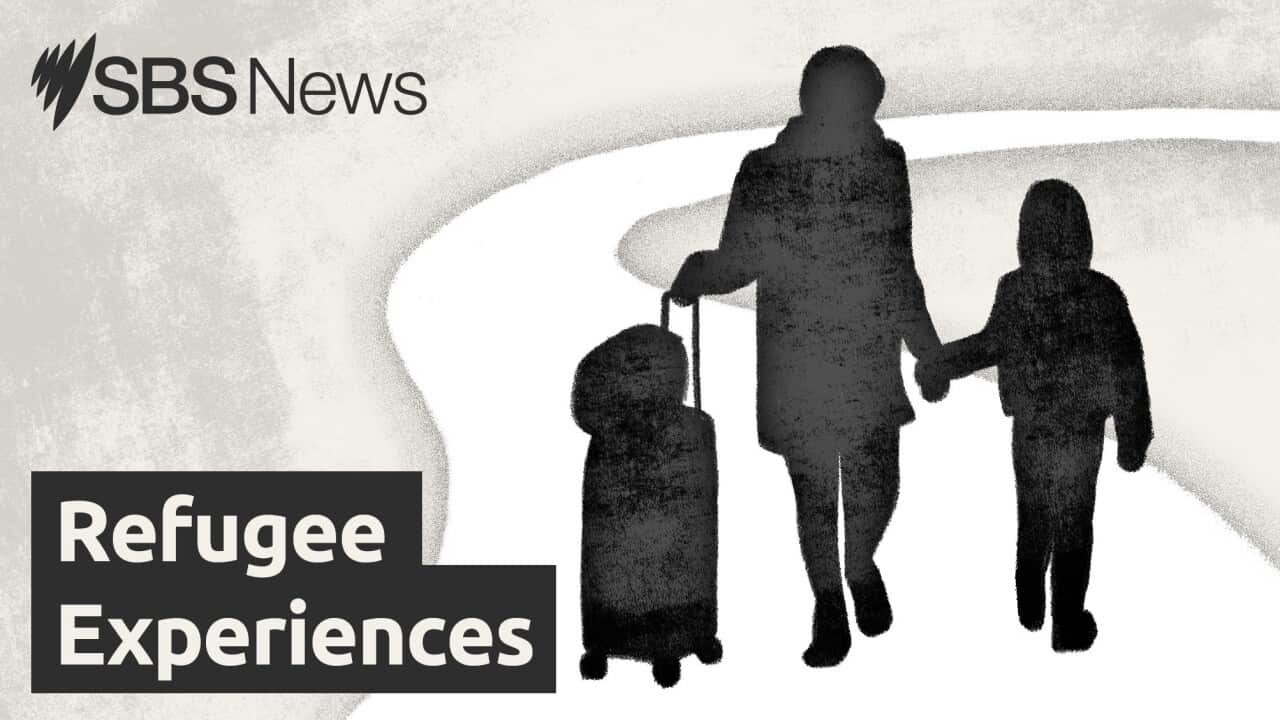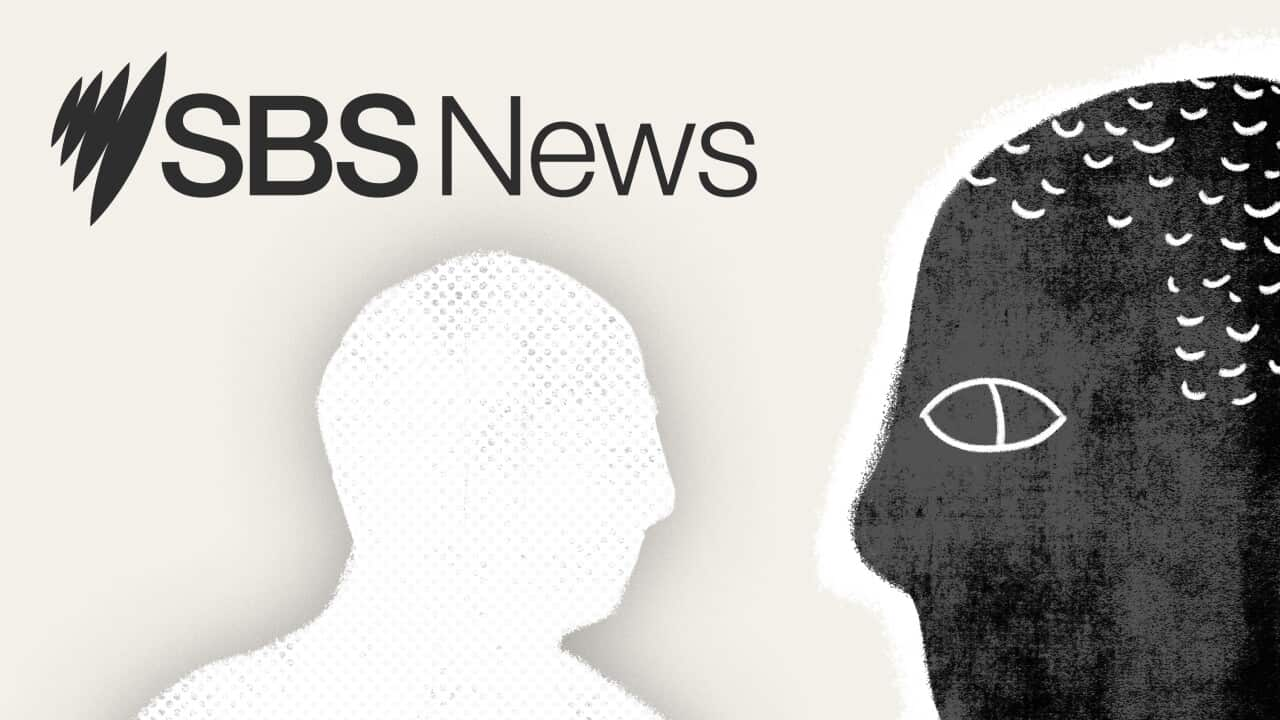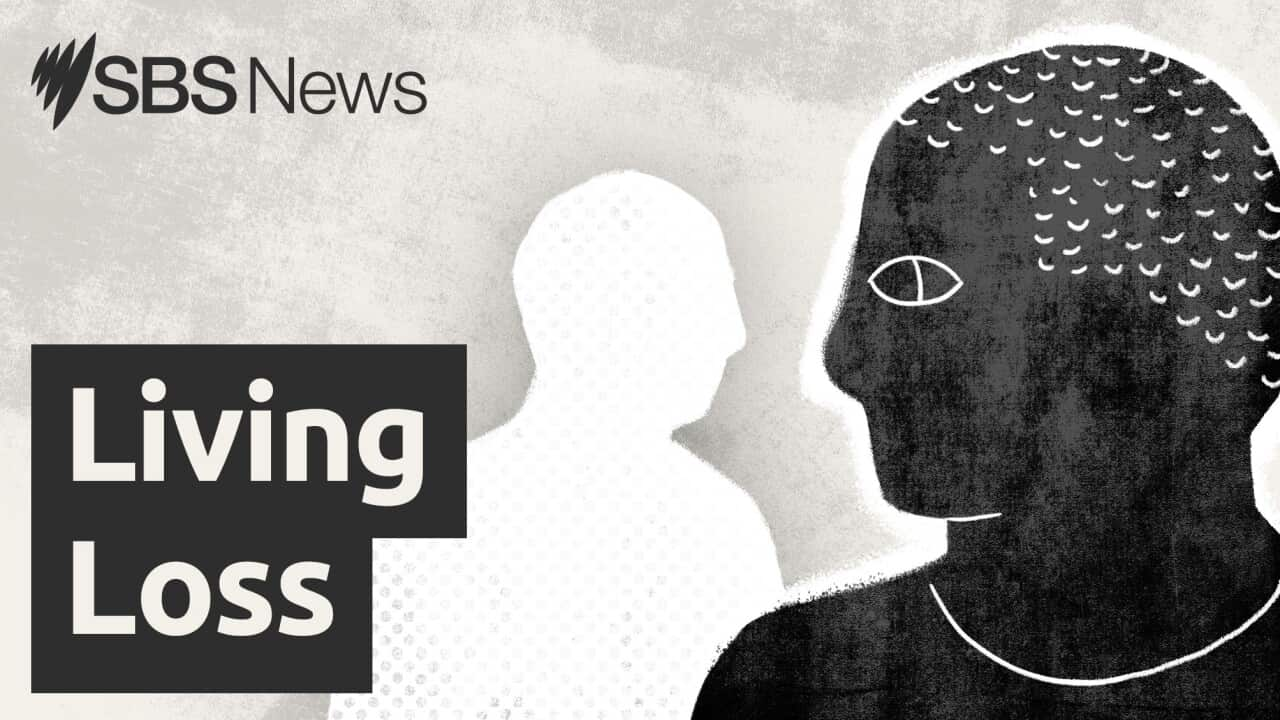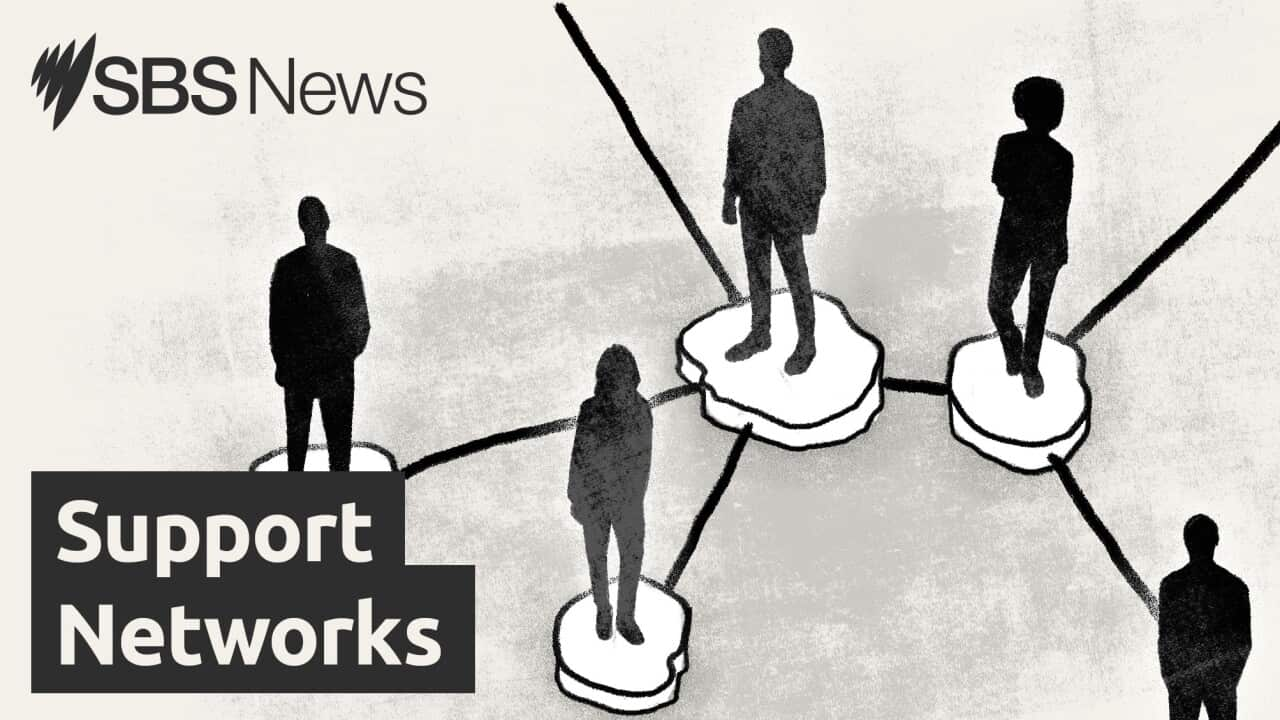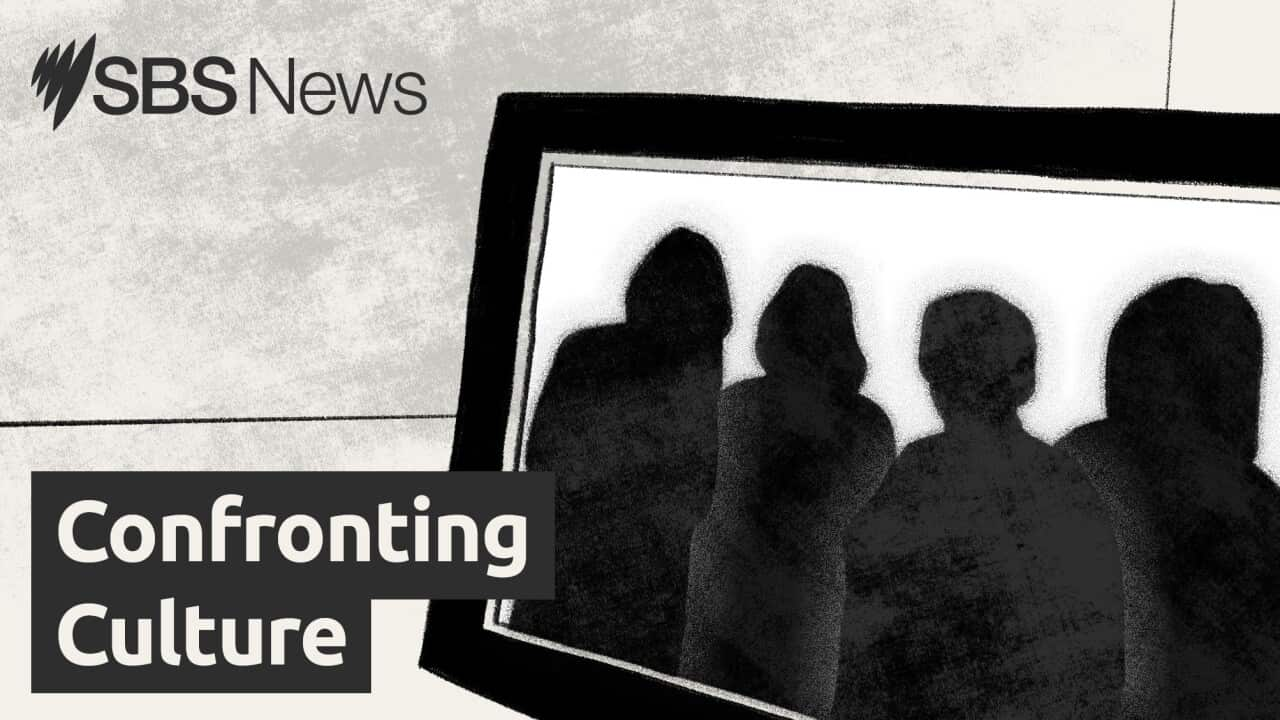TRANSCRIPT
“Little did I know that when I began to tell my story for the first time in 20 years, is when I realised, I was not okay.”
“I think the grieving comes after detention a lot because in freedom, it's kind of a semi freedom, it's not a real freedom.”
Everyone, at some point or another, will lose someone or something they love.
And yet grief is still seen as a taboo, particularly in dominant western cultures.
So how do different cultures hold space for grief, and are some better equipped than others?
And how can we think about grief beyond the concept of death, looking at other profoundly life-changing forms of loss?
I'm Catriona Stirrat, and this is the seventh episode of 'Living Loss'.
In this episode, we explore the unique grief experience of refugees and asylum seekers.
There are often compounding layers of loss and grief in making the treacherous journey to escape one's home country, often leaving behind family and loved ones, and being forced to integrate into an unfamiliar new world.
Deena Yako is Director of Community Engagement at the Refugee Council of Australia, and shares her story of fleeing Iraq at just nine years old.
“So decisions were made, my parents decided that we had to leave Iraq, and this was in the mid-80s. And they didn't actually tell us about the move, and our travels. So it was a big surprise for me and my younger brother who was six at the time, and I was nine. So we embarked on this really, really long journey of the unknown. Little did we know what was waiting for us on the other side of the world, or on the other side of the border, once we crossed the border of Iraq. Everything that was ever familiar to us, everything that was common, everything that we knew, we had just lost in a matter of, you know, days.”
Deena describes a multi-layered grief, encompassing loss of identity, family, language, culture and home... especially when she was forced to uproot once again, leaving Iran where her family had resettled for a few years.
“I think what I really want to kind of touch on is the grief of having to leave again. Because to me, I was a young child, spent about three and a half to four years in Iran, and I think that's when I developed you know kind of my personality and who I was. And I really formed an attachment to a country that has actually started to feel somewhat familiar to me. I started to speak the language, I started to know more about the culture, and when I got that sorted, I was told I once again had to pack up and leave. So to me I think the grief of having to lose who I am again was really, really difficult, and had impacted on me a lot.”
She says the grief has changed over the course of her life, from a child, to a teenager, and now as an adult.
“A lot of kind of unpacking happened because there were just so many missing pieces to this puzzle of life. You know, of my childhood, and I often used to think 'this doesn't make sense, some things don't really make sense'. And it's only when I got older when I was able to kind of sit with my parents and ask them all the questions I really needed clarifications on - and find out how it was like, and what it was like. And to my greatest shock and surprise I honestly can't believe we managed and survived.”
This isn't uncommon in the refugee or asylum seeker experience.
Mostafa Azimitabar, or Moz as he's affectionately known by friends in Australia, says he was an activist back in his homeland Iran - but the situation became too dangerous.
He was forced to flee.
“So I came to Australia for safety, I came to Christmas Island by boat. And the Australian government locked me up in an invisible coffin surrounded by lots of fences, electric wires, handcuffs, chains, unhygienic situations, hundreds of securities, the sounds of radios I hear them a lot, even when I'm out of detention. And for my whole time, for 8 years in detention, I was a number. And my number was KNS-088.”
Mostafa describes the evolving grief that continues to take place since his release from immigration detention in 2021.
“So what they did to me is they took my identity. They told people in Australia, the government told people in Australia that this is a processing centre. What I'm doing is sharing the fact with people that it was not a processing centre. Detention centres in Australia are torture centres, it's not processing centres. I think the grieving comes after detention a lot because in freedom, it's like a semi freedom, it's like a not a real freedom, because I'm still on bridging visa and I don't have permanent visa and they want me to leave Australia. That is the sad part of my journey.”
Migration lawyer and refugee advocate Oliver Slewa was also forced to flee his home.
He was born in Iraq's capital Baghdad as the youngest of four siblings, and was only four and a half when he was uprooted in 1992 alongside his mother and siblings, when Iraq became an unsafe place for Assyrian Christians.
Not only was Oliver's journey by boat precarious, but so too was the situation for his father who they were forced to leave behind.
“The only thing was we had to leave without my Dad, just to avoid suspicion. And because of his position in the government, as an employee of the government, so he couldn't leave. He had to stay back, but we didn't know what was to come of that. But we went through Iran from Iraq to Jordan, from Jordan to Turkey. From Turkey we were on a boat fro nearly tow months. We were stuck in the middle of the ocean between Turkey and Greece. Greece would not let us enter its shores and Turkey would not allow us to go back. And I have a vivid memory of people throwing their kids off the boat, trying to get the attention of fishing boats to take them to shore. And we didn't know what was our future, whether we would stay on this boat forever, or whether someone would accept us.”
After being refused visas for nearly two years in Greece, Oliver and his family were finally welcomed in Australia.
Their application was accepted because his mother was deemed a woman at risk, as she was by herself with four children.
Oliver said he remembers instantly feeling as though Sydney would be his home, but recalls the grief, even at a young age, of leaving his father behind.
“But in the back of my mind, I always thought: 'When's my Dad going to join us?' And the question was: 'When will I ever reunite with my father? What's going to happen?' Imagine starting primary school here, and until you graduate year 12 my Dad was not around. I did not know what was going to happen to him. So we used to write to him, send him pictures, and he'd write back. If he'd get a chance he'd call my Mum or his brother that was in Sydney, just so we could hear from him.”
Oliver was eventually reunited with his father - but not until he was 18 years old.
He describes their emotional reunion, after spending a childhood grieving his absence.
“I will always have this memory saved, and I'll take this memory with me to the grave. When he arrived in Sydney airport, it's like family reunited after 16 and a half... [[crying]]... after 16 and a half years. We just held him, all of us held him. Put our arms together. And we cried because it was joy and it was sadness, and it was relief that he had come back.”
The turbulence of the refugee journey is something Moz can relate to.
He's now an artist and film-maker who uses his grief, alongside other aspects of his life, to create work that speaks to the refugee experience.
His experience of eight years in detention, and another 14 months in hotel detention, is one that continues to haunt him.
But he doesn't let this trauma dictate his life.
“I am good at celebrating some moments that I become successful, even if the moment is so simple. Even if I draw something, or paint for example with coffee, that always makes me smile. That, look, I am alive, I survived from torture centres, from a lot of trauma. And now I have managed to paint and I call myself an artist. I never thought one day I can be an artist. I just try to paint very unusual technique, and I love it, when I say unusual technique. Because it's my story.”
Deena says she never imagined she could settle in Australia.
While she was struggling to adapt to her new life, she was also experiencing grief for her loved ones back in Iraq who were suffering under the Gulf War.
“So there was that grief of reliving the war again but knowing that our families were so far away, hearing the news and watching all of that kind of break on the media. And it was just, just heartbreaking you know, cos we felt so helpless. You know, we talk about settlement and re-settlement of refugees, and what that looks like. Unfortunately often when refugees are resettled it's not just an easy process, it's not a happy process. Yes we are really grateful, we are really happy to be safe, but there is a part of you, part of your heart is with your family and loved ones overseas. And often the situation and the circumstances aren't really the best and aren't the safest. So it is like a continuous grief that often occurs.”
As an adult, she became passionate about helping others navigate the grief intrinsic to the refugee journey, hoping to fill a gap she witnessed between refugees and the wider Australian community.
She began community work with families fleeing Iraq in 2006 and then became a refugee advocate for the Refugee Council of Australia in 2017 , which has included representing the Australian Iraqi community at the United Nations High Commissioner for Refugees in Geneva.
She says this work has actually forced her to confront her own grief.
“At the beginning it was extremely difficult, because every single story I heard, I related to. I didn't realise how much of an impact these stories would have on me, because every single person I supported sounded like me, looked like me. Little did I know that when I began to tell my story for the first time in 20 years, from the beginning, of having to leave home, going through the process of being an asylum seeker and being in detention centres, coming to Australia and facing some really, really difficult times, is when I realised I was not okay, that that trauma was actually triggered. So it took a really, really long time for me to come to terms with what has happened.”
This is also the case for Oliver.
He has used his work as a migration lawyer and volunteer as a way to help other refugees and migrants settle and establish new lives in Australia.
Oliver volunteers at Shayna Humanitarian, where he provides assistance to vulnerable community members, with a particular focus on supporting women and children facing domestic and family violence.
This sense of mentorship is something that emerged at a very young age.
“Throughout my whole school years, because I felt alone, growing up alone, I developed this opportunity where every new Assyrian refugee or Iraqi refugee that would come, the school would put me as their mentor or as their peer. I just became like this from grade two all the way to high school, every single year. And I developed this way of, I went through this alone, I don't want anyone else to. I used to help translate for them on the spot, from Assyrian to English or from Arabic to English. So I was helping students grow up because I didn't want them to suffer what I went through - isolation, language barrier, difficulties, all these challenges and barriers that I went through, I did not want them to go through that.”
This often misguided language and assumptions tied to refugees is something Moz has also confronted.
“In Australia, a lot of people are scared of refugees. A lot of people, I tell you. Because in the refugee sector they haven't educated people in Australia that they're survivors. They always call people ex-detainees. The label that the government has created, they have accepted this language. We are survivors, please don't call us ex-detainee. For example, I have been in interviews, I have done interviews with TV, and I have seen that I have been used just to share a part of their story that they needed. A few other people are there to say their words about refugees, in a way that they are expert.”
His response to this disconnect has been to use art and community to reclaim refugee narratives.
“So I try to bring the story in different circles. For example music, art, sport, and when I go to different circles of this society, I see that a lot of people are not aware of what has happened. Because I believe that 95% of people in the world are nice, so it's about how we can communicate with each other, how we approach and tell the fact to people. A lot of people don't know about the reality, like what happened to us.”
But it can also be traumatic to share this story.
Oliver has had to find techniques to distance himself from internalising the familiar stories he hears on a daily basis.
“I've been able to develop self kind of managed my grief and emotion. I disconnect from it. There's always that one particular person that plucks at the heart strings and I have to walk out. So I've been practicing this technique because it's healthy. It's healthy for myself - because I have to be mindful of my wellbeing but there's always that one particular situation where it's like: 'No this is too much'. So it really is emotional. There are instances where I'll be honest with you, some particular situations, people have really kind of plucked at my heartstrings. I've had to finish that advice session, get up, walk away and do some of my mindfulness.”
For Deena, sharing her story means navigating the pain of her past while offering hope to others.
“I think I had just kind of buried it really deep down because I didn't want to talk about it, I thought that not talking about it would make me feel a lot better. But I think the more I started to speak about my journey, I think the more ownership I had, and the more control of the narrative that was you know being discussed on my behalf. The only thing I really wanted, and the only message that I wanted to put forward was: just remember my face, and remember my story. So the next time you hear about refugees and people seeking asylum, just remember that we met this woman, her name was Deena. And she had a story.”
